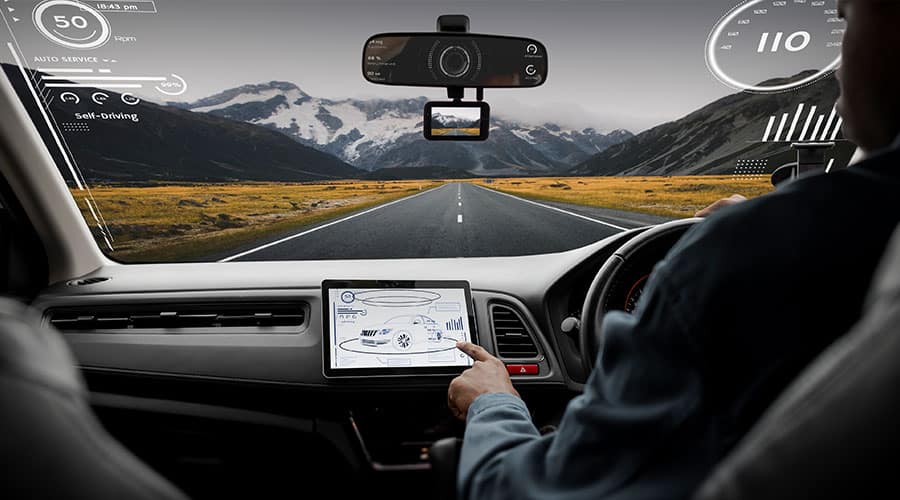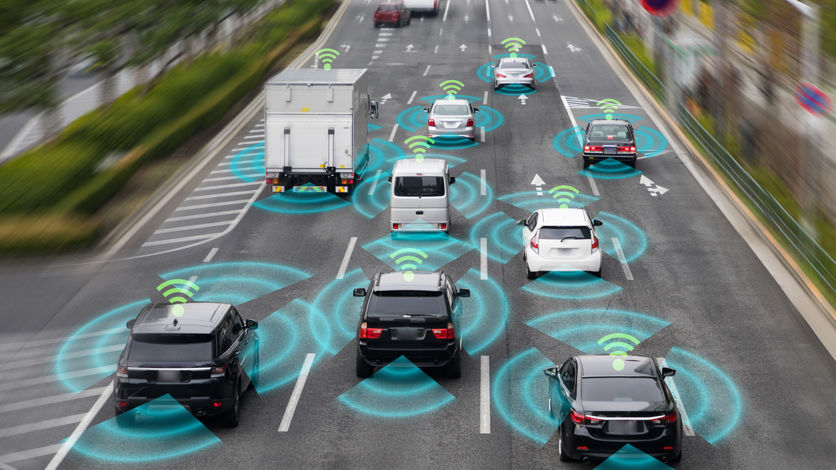
Autonomous vehicles are self-driving cars that can operate without human intervention. They use sensors and advanced technologies to navigate and make decisions on the road.
With the rise of artificial intelligence and the constant development of autonomous technologies, autonomous vehicles are becoming more prevalent in our society. From their potential to reduce traffic accidents and congestion to their potential to revolutionize transportation systems, autonomous vehicles hold significant promise for the future.
As more companies invest in autonomous vehicle research and development, it is clear that this technology will continue to evolve and shape the way we travel. However, there are still challenges to overcome, such as addressing safety concerns and establishing regulations that ensure the responsible use of autonomous vehicles. Overall, autonomous vehicles have the potential to transform the way we move, making transportation more efficient, convenient, and sustainable.

Credit: www.walleniuswilhelmsen.com
Advancements In Autonomous Vehicle Technology
Autonomous vehicles have witnessed significant advancements in technology over the years. As we delve into the history of autonomous vehicles, we can trace the key technological breakthroughs that have paved the way for their development. Artificial intelligence plays a crucial role in enhancing the capabilities of autonomous vehicles and enabling them to make intelligent decisions on the road.
With the integration of ai, these vehicles incorporate safety features that minimize the risk of accidents and ensure the well-being of passengers and pedestrians alike. Alongside these technological advancements, regulations governing autonomous vehicles are being established to ensure their safe integration into our roadways.
The impact of autonomous vehicles on our society and transportation systems is far-reaching, promising increased efficiency, reduced congestion, and improved accessibility. The future of autonomous vehicles holds immense potential, revolutionizing how we commute and shaping the future of transportation.
The Benefits Of Autonomous Vehicles
Autonomous vehicles offer numerous benefits, starting with improved road safety and accident prevention. These vehicles are equipped with advanced sensors and artificial intelligence that can detect and respond to potential hazards quickly. Additionally, they contribute to the reduction of traffic congestion and ensure smoother traffic flow by optimizing routes and minimizing accidents.
Another advantage is enhanced accessibility for the elderly and disabled, as autonomous vehicles can provide independent transportation options for those who may have difficulty driving or accessing public transportation. Moreover, these vehicles have environmental advantages, reducing carbon emissions and promoting sustainability.
With their potential to revolutionize transportation, autonomous vehicles are poised to reshape the future.
Autonomous Vehicles In Our Daily Lives
Autonomous vehicles are rapidly finding their way into our daily lives. They revolutionize personal commuting by offering a safe and convenient mode of transportation. These vehicles can seamlessly integrate into public transportation systems, providing a reliable and efficient way to travel.
Moreover, autonomous taxis and ride-sharing services have gained popularity, offering cost-effective and convenient options for urban mobility. Additionally, the delivery and logistics sector is witnessing a transformation as autonomous vehicles are increasingly used for efficient and timely deliveries. With their advanced technology and sophisticated algorithms, these vehicles enhance the overall efficiency and safety of transportation systems.
As autonomous vehicles become more prevalent, their positive impact on society will continue to grow, shaping the future of mobility.
Challenges And Concerns Surrounding Autonomous Vehicles
Autonomous vehicles present various challenges and concerns. The legal and ethical implications are significant, raising questions about liability and responsibility. Cybersecurity risks and hacking concerns are also valid fears, considering that autonomous vehicles rely heavily on technology. Public acceptance and trust are vital factors, as people need to feel confident in the safety and reliability of these vehicles.
The impact on jobs and the economy is another concern, as the introduction of autonomous vehicles may result in job displacement and the need for new regulations. Addressing these challenges and concerns is crucial in the successful integration of autonomous vehicles into our society.
The careful consideration of legal, ethical, cybersecurity, and societal factors will determine the future of this groundbreaking technology.
The Future Of Autonomous Vehicles
The future of autonomous vehicles looks promising, especially in the context of smart cities. With collaboration between car manufacturers and technology firms, these vehicles are set to revolutionize transportation. Market projections for autonomous vehicles indicate a growing industry with immense potential for expansion.
However, future challenges need to be addressed, such as ensuring safety and integrating these vehicles with existing infrastructure. Solutions to overcome these obstacles are being explored, including advanced sensors and algorithms. As we move forward, it is essential to keep pace with technological advancements and adapt our cities to accommodate the autonomous vehicle revolution.
The future holds great promise for this industry, and we are witnessing the beginning of a transportation revolution.
Frequently Asked Questions Of Autonomous Vehicles
What Are Autonomous Vehicles?
Autonomous vehicles, also known as self-driving cars, are vehicles that can navigate and operate without human input. They use advanced sensors, cameras, and artificial intelligence to detect and respond to their surroundings, allowing them to drive safely and efficiently.
How Do Autonomous Vehicles Work?
Autonomous vehicles use a combination of sensors, such as radar, lidar, and cameras, along with advanced software algorithms to interpret and analyze information about their surroundings. This allows them to make real-time decisions and navigate through traffic, obstacles, and varying road conditions.
Are Autonomous Vehicles Safe?
Safety is a top priority for autonomous vehicles. With their advanced sensors and technology, they have the ability to detect and respond to potential hazards more quickly than human drivers. Additionally, autonomous vehicles are designed to follow traffic laws and regulations, further enhancing their safety.
Can I Buy An Autonomous Vehicle?
While autonomous vehicles are still in development and not widely available for purchase, some automakers offer vehicles with advanced driver-assistance systems (adas) that have autonomous capabilities to a certain extent. However, fully autonomous vehicles for public use are still being tested and are not yet commercially accessible.
What Are The Benefits Of Autonomous Vehicles?
Autonomous vehicles have the potential to revolutionize transportation in various ways. They can improve road safety by eliminating human error, reduce traffic congestion by optimizing traffic flow, enhance fuel efficiency by optimizing routes, and provide accessible mobility options for those who are unable to drive.
What Are The Current Challenges With Autonomous Vehicles?
Despite the exciting possibilities, there are still challenges to overcome in the development and adoption of autonomous vehicles. These challenges include legal and regulatory issues, public trust and acceptance, technical limitations in certain driving conditions, and the need for consistent infrastructure and connectivity.
Conclusion
The rapid rise of autonomous vehicles presents a transformative shift in the way we think about transportation. The future of mobility holds great promise, with self-driving cars offering convenience, safety, and environmental benefits. As we navigate the road ahead, it is crucial to address concerns around cybersecurity and liability while embracing the opportunities these vehicles bring.
The development of connected infrastructure and a robust regulatory framework will be essential to ensuring a smooth integration of autonomous vehicles into our daily lives. With ongoing advancements in artificial intelligence and machine learning, we can expect even greater improvements in self-driving technology.
The potential impact on various industries, from logistics to healthcare, is immense. With each passing year, autonomous vehicles inch closer to becoming a common sight on our roads, revolutionizing the way we travel and shaping the future of transportation.









